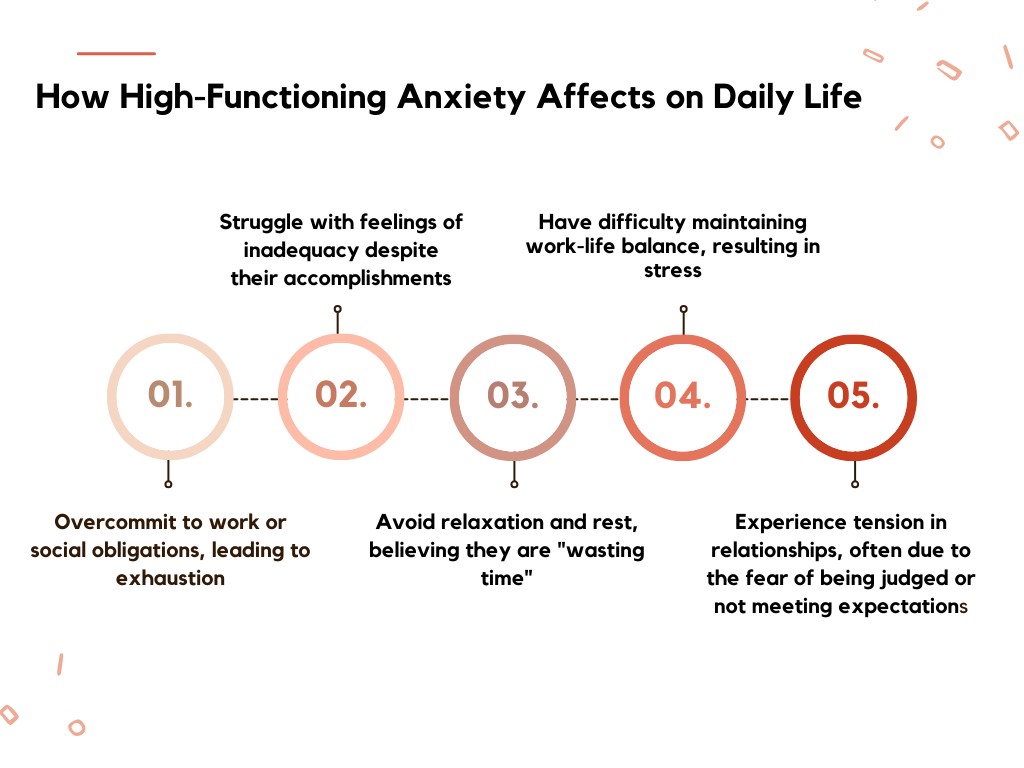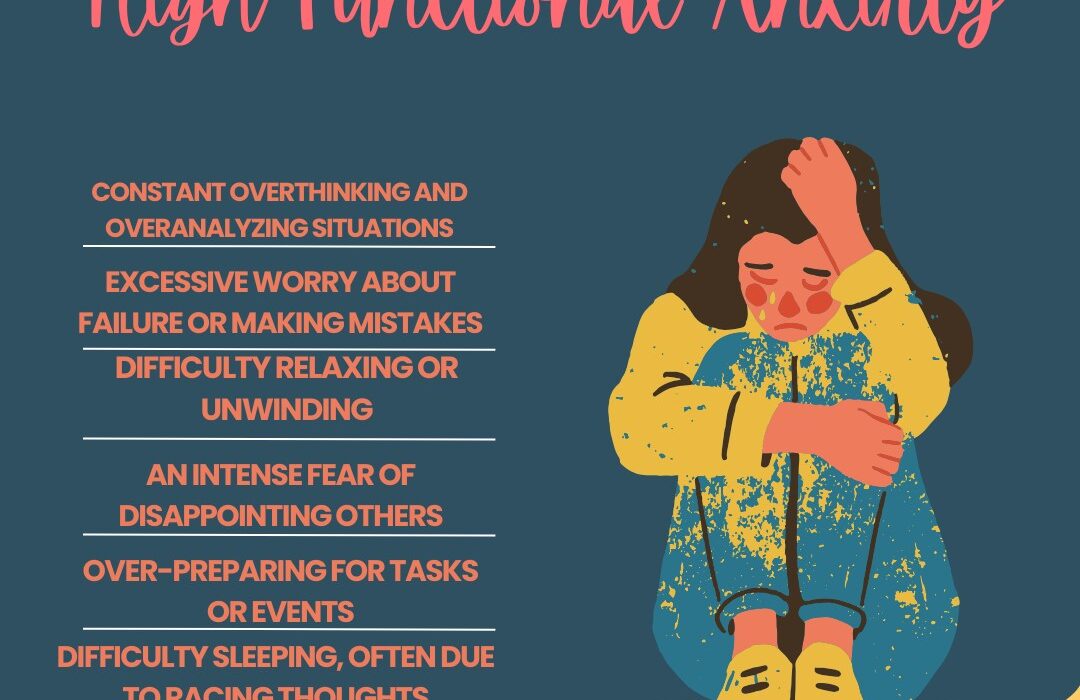What is High-Functioning Anxiety and How to Manage It
Introduction Sometimes people suffering from high functional anxiety are not aware of the condition because they perform all daily tasks with proper ability. They perform very well at work and are seen as normal in social gatherings. In reality, they are hiding all their feelings in many cases. They seem to act normally, but they fight with fear, worry about small things, and feel stressed about daily life problems. We are going to explore how we can identify high-functioning anxiety, what common things we can do to diagnose it, and how we can help people suffering from high-functioning anxiety to manage it properly.
Understanding High-Functioning Anxiety
It can be challenging to diagnose high-functioning anxiety properly. People who are suffering from high-functioning anxiety usually look fine, and everything seems to be in control. From appearance, they seem like they are happy in their lives, achieving all their goals at their workplace and home.
But deep inside, in many cases, they feel useless, always fear failure, and overthink almost everything. They worry about daily life problems more than a regular person. But unlike all other types of anxiety, people suffering from high-functioning anxiety can manage to perform tasks of daily life flawlessly, achieve success in their careers, and have a good personal life.
Unlike those who are performing well in their lives, high-functioning anxiety can have a bad effect on their mental health.
Common Symptoms of High-Functioning Anxiety
These people hide their signs of anxiety, but by paying attention to some behavioral changes, we can identify it. Some common symptoms include:
How to Manage and Cope with High-Functioning Anxiety
High-functioning anxiety can be managed by some effective strategies. We can help the person cope with this situation by providing our support. The main point is we have to manage the balance between work and taking care of our mental health.
Here are some tips:
1. Acknowledge Your Anxiety:
You have to accept the truth that you are suffering from high functional anxiety. The best way to do this is to accept the inner feelings of your heart.
2. Set Realistic Expectations:
High functioning anxiety occurs due to unrealistic expectations about yourself. If you start to have realistic expectations, you can achieve them easily, and there will be no more fear about failing in front of others.
3. Develop Relaxation Techniques:
The better way to relax thoughts is to start your day with yoga. When you feel anxious, close your eyes, take a deep breath, and follow proper medication.
4. Break Tasks into Smaller Steps:
When you are performing a hectic task, try to break it into smaller parts. By doing this, you can divide the workload, and your work pressure will decrease eventually.
5. Seek Support:
The main point of this illness is that the person hides their feelings. You could talk with your parents, your friends, or any other person with whom you would like to share your feelings.
6. Practice self-compassion:
They always criticize their work. This leads them to feel useless. They have to realize that perfection in everything is not important. When they start accepting this thing, they will start to love themselves.
Effects of functional anxiety on daily life

When to Seek Help for High-Functioning Anxiety
It is very important to identify that when you have to visit a doctor. The doctor will provide you with a proper guide on how you can get rid of this illness.
- Life become hard if you have any kind of anxiety.
- It will cause stress that will be fatal and lead to physical symptoms like headaches and fatigue.
- If you don’t pay attention, it will turn severe.
- If you feel that you are unable, you can choose a leader to lead you.
The main question came to mind: Which therapy will be beneficial for high functional anxiety?
The main therapy to control high functional anxiety is Cognitive Behavioral Therapy (CBT).
The work of the therapist is to set your thoughts in a way that you can easily challenge anxious thoughts. If anxiety is at a severe stage, you might adopt medication to control the situation.
Tips for Managing High Functioning Anxiety at Work or in Social Situations
The main problem is feeling the high pressure of work. This will affect their performance.
Here are some hands-on strategies for managing anxiety in these situations:
1. Prioritize Tasks:
You can start your work with those tasks that are most important. Prefer to do one task at a time. This can reduce the pressure of work and you can complete work more effectively.
2. Take Breaks:
Take small breaks while doing work to relax your mind. It is not necessary to have a long break; you can relax your mind in a few minutes.
3. Manage Perfectionism:
Mistakes are not a sign that you are a loser. Everything you do can not be perfect. By accepting this truth, you can achieve peace of mind.
4. Prepare for Social Events:
Prepare yourself before going out for any event. Always keep that thing in mind you have to take a small break.
5. Set Boundaries:
If a task you are not able to complete, you can say no. This will keep you away from extra pressure on you.
Conclusion
It is very difficult to remove from life. But if you adopt the right path, you can avoid it properly. You could take care of yourself and your mental health. and this will lead to a peaceful mind and a happier life. It is significant to ask for help. This will be a huge step to control high functional anxiety.
Frequently Asked Questions (FAQs) About High-Functioning Anxiety
Q1: Is high-functioning anxiety a medical diagnosis?
It is anxiety in which people seem fine and can perform daily life work properly. That’s why it is not a medically diagnosed illness.
Q2: Can high-functioning anxiety lead to burnout?
Yes, it will lead to emotional burnout.
Q3: What are some natural remedies for high-functioning anxiety?
Natural remedies are a healthy diet, and performing yoga regularly can treat high-functioning anxiety.
Q4: How can therapy help with high-functioning anxiety?
Therapy can lead individuals to build plans that can help them cope with anxiety.


